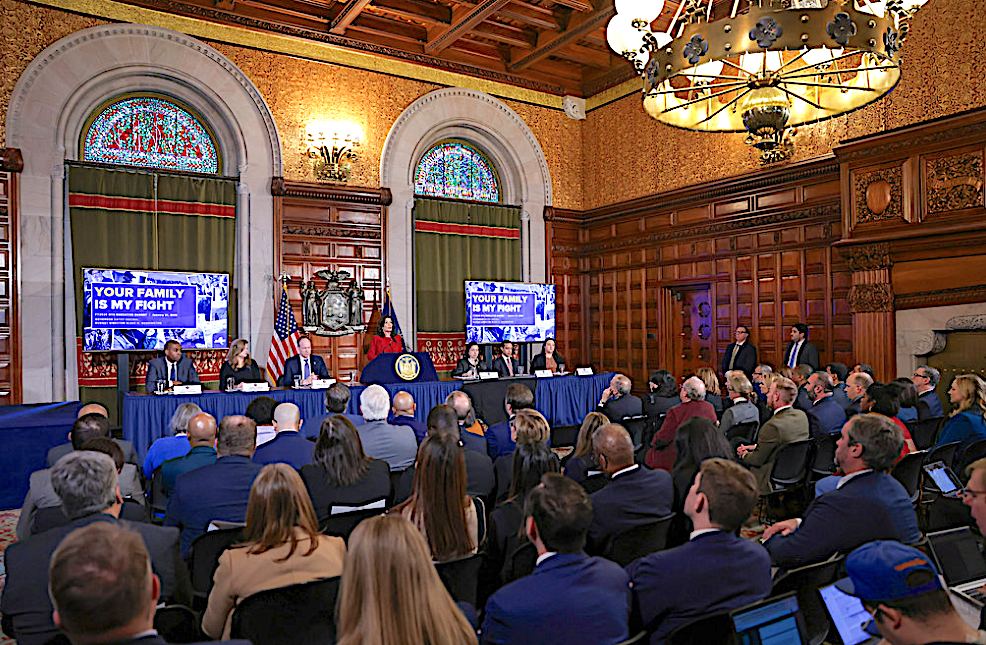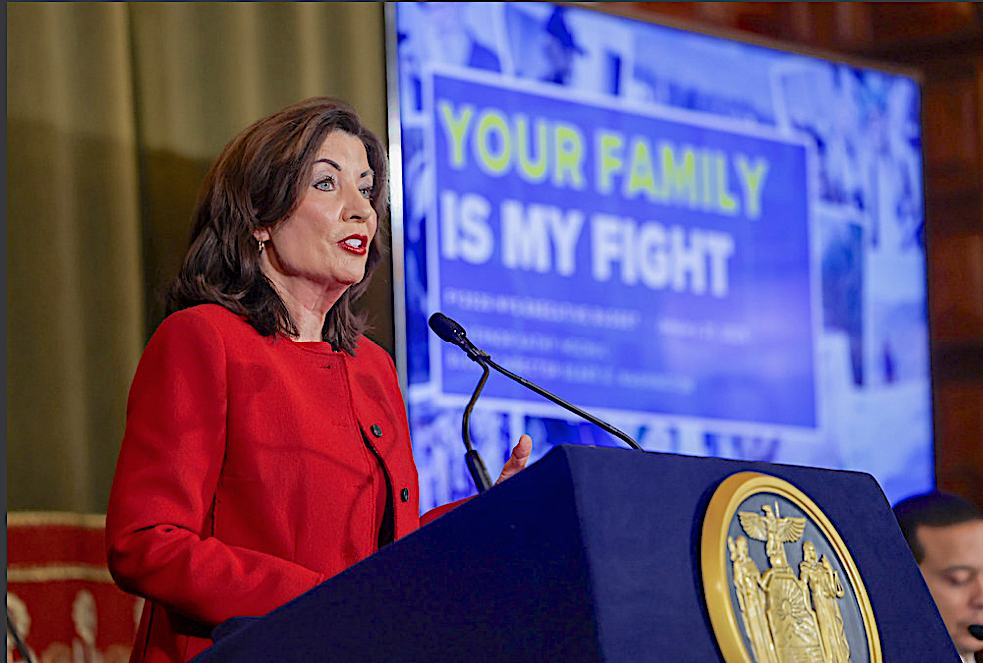New York Gov. Kathy Hochul addressed a crowd of legislative leaders, state officials and invited guests in Albany Jan. 21 to unveil her Fiscal Year 2026 Executive Budget. Proposed state spending is $252 billion with no increases in income taxes. The budget shows $21 billion socked away in the state’s reserves.
Hochul called for a full-scale effort to remove the cap on income tax deductions for state and local taxes, known as SALT. Republicans n Washington instituted a $10,000 cap on the amount that people can deduct on their federal income tax returns for taxes paid to state and local governments. The move hurt states such as New York where property and other taxes are higher than in most Republican-controlled states.

“To deal with rising costs, New Yorkers need another form of relief: removing the state and local tax deduction cap,’ Hochul said. “This cap was instituted the last time Republicans governed Washington in 2017. It’s costing New Yorkers up to $12 billion more in taxes to the federal government each and every year.”
Hochul said that over the past six years the SALT cap has cost New Yorkers $72 billion.
“Despite a bipartisan bill that could have addressed this issue, Republicans in Congress including seven from New York have refused to act,” Hochul said. “They are actually working against their own constituents to accept a watered down proposal rather than a full repeal of the cap. New Yorkers deserve better. As Governor, I say this: Full repeal or no deal. Let me repeat. Full repeal or no deal.”
Hochul said that state revenue collection has increased by 6% since last year. She said part of her spending plan will be putting a total of $5 billion “back in the pockets of everyday New Yorkers.”
Her $5 billion figure includes $3 billion previously announced in Inflation Refund checks to be sent to 8.6 million people, including $500 for joint filers making less than $300,000 and $300 for single filers making less than $150,000. There would be $1 billion in middle-class tax cuts through tax rate cuts across five of the state’s nine income tax brackets. The new budget provides $825 million in expanded Child Tax Credit over two years, giving eligible parents $1,000 for children under 4-years-old and $500 for those ages 4-16. There also would be $340 million to provide free school breakfast and free school lunch for every student in New York.

The budget calls for $370 million to be spent on gun violence prevention programs, $77 million for a six-month deployment of two New York Police Department officers on every New York City subway train between 9:00 p.m. and 5:00 a.m. and a strengthened law enforcement presence on subway platforms, matched by an additional $77 million in funds from New York City.
Hochul proposes allocating $1 billion over five years to support the construction of new housing in New York City. The budget includes $760.5 million for municipalities in the state’s Pro-Housing Communities program. The budget makes $100 million available for first-time homebuyers, including $50 million in capital for starter homes and $50 million for down payment assistance.
The budget proposes spending $750 million for economic development projects that serve communities across New York, such as the Downtown Revitalization Initiative and the New York Works Economic Development Fund. It calls for $47 million to fund free community college for New Yorkers ages 25 to 55 pursuing degrees in vocations such as nursing, technology and engineering.
The budget would provide $37.4 billion in total school aid. It includes $1.3 billion in new capital funding for public colleges and universities in the SUNY and CUNY systems, $110 million to build or renovate child care centers, and $64.6 million to help low-income students access college credits.
The budget provides $1 billion for clean energy, including retrofitting homes with energy efficient equipment such as heat pumps, and supporting business that cut carbon usage. The state would spend $500 million for clean water infrastructure that supports municipal drinking water and wastewater treatment.
New York’s Medicaid program would have funding of $35.4 billion. There would $50 million to support abortion access and protect providers from violence or harassment.
The budget provides $6.9 billion for the New York State Department of Transportation’s capital plan, $3 billion in state funding to support the MTA’s proposed $68.4 billion 2025-2029 Capital Program and $25 million for planning and design of improvements to Hudson Valley rail service, including efforts to shave as much as 15 minutes of commuting times for certain trips on Metro-North.






















